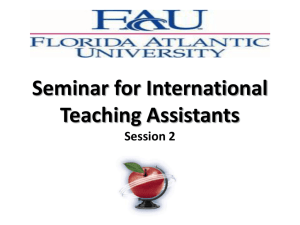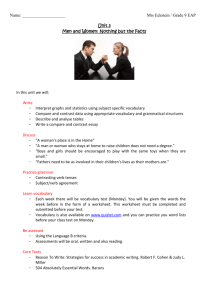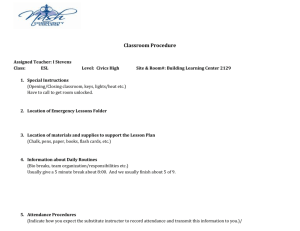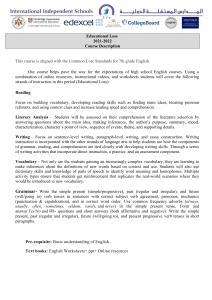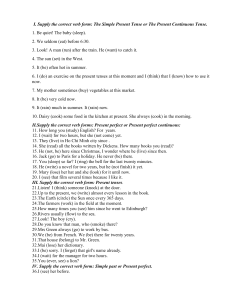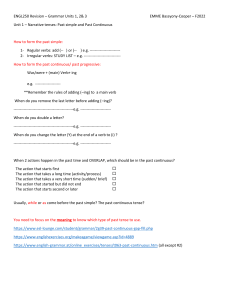Teaching approaches
advertisement
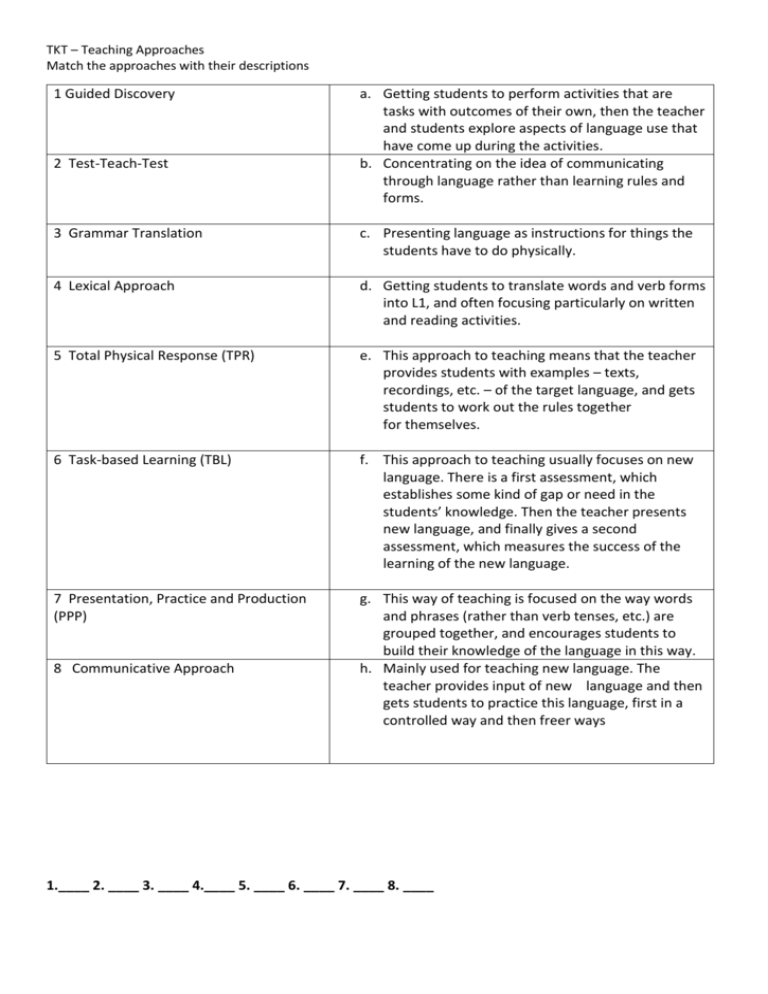
TKT – Teaching Approaches Match the approaches with their descriptions 1 Guided Discovery 2 Test-Teach-Test a. Getting students to perform activities that are tasks with outcomes of their own, then the teacher and students explore aspects of language use that have come up during the activities. b. Concentrating on the idea of communicating through language rather than learning rules and forms. 3 Grammar Translation c. Presenting language as instructions for things the students have to do physically. 4 Lexical Approach d. Getting students to translate words and verb forms into L1, and often focusing particularly on written and reading activities. 5 Total Physical Response (TPR) e. This approach to teaching means that the teacher provides students with examples – texts, recordings, etc. – of the target language, and gets students to work out the rules together for themselves. 6 Task-based Learning (TBL) f. This approach to teaching usually focuses on new language. There is a first assessment, which establishes some kind of gap or need in the students’ knowledge. Then the teacher presents new language, and finally gives a second assessment, which measures the success of the learning of the new language. 7 Presentation, Practice and Production (PPP) g. This way of teaching is focused on the way words and phrases (rather than verb tenses, etc.) are grouped together, and encourages students to build their knowledge of the language in this way. h. Mainly used for teaching new language. The teacher provides input of new language and then gets students to practice this language, first in a controlled way and then freer ways 8 Communicative Approach 1.____ 2. ____ 3. ____ 4.____ 5. ____ 6. ____ 7. ____ 8. ____


